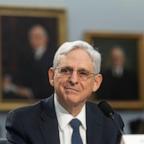Health Highlights: Dec. 14 2009
Dec. 15 -- Here are some of the latest health and medical news developments, compiled by the editors of HealthDay:
Kidney Exchange Benefits 13 Recipients
A record-setting kidney swap in which 13 people received organs was accomplished over six days by surgeons at Georgetown University Hospital and Washington Hospital Center in Washington, D.C.
The exchange -- believed to be the largest of its kind -- included three donors who offered a kidney to anyone and five patients who received kidneys only because of a blood-cleansing treatment called plasmapheresis that reduced the risk of rejection, the Associated Press reported.
Another special feature of the kidney swap was that 10 of the kidney recipients are black, Asian or Hispanic. Minority patients in the United States are far less likely than whites to receive a kidney transplant from a living donor, which is superior to a kidney from a deceased donor.
In the United States, 88,000 people are on the kidney transplant waiting list, but fewer than 17,000 kidney transplants are performed each year.
The use of multiple kidney swaps and blood-cleansing could lead to 4,000 more transplants a year, said Dr. Keith Melancon, Georgetown's kidney transplant director.
"It's really almost a religious experience when we start doing this, because it's miraculous, it really is," he told the AP.
-----
Americans May Live Longer Than Government Thinks
Thanks to biomedical advances, the average American lifespan in 2050 will be longer than the U.S. government now predicts, says a team of researchers.
The average American will live three to eight years longer than the U.S. Social Security Administration and Census Bureau anticipate, said members of the MacArthur Research Network on an Aging Society in a report released Monday, according to ABC News.
Those few years could have a huge implication on U.S. society, they said. "The economic implications for the U.S. economy are huge. We estimated we would be spending $3.2 to $8.3 trillion more in today's dollars than currently projected," said S. Jay Olshansky, professor in the school of public health at the University of Illinois at Chicago and co-author of the report released in The Milbank Quarterly.




